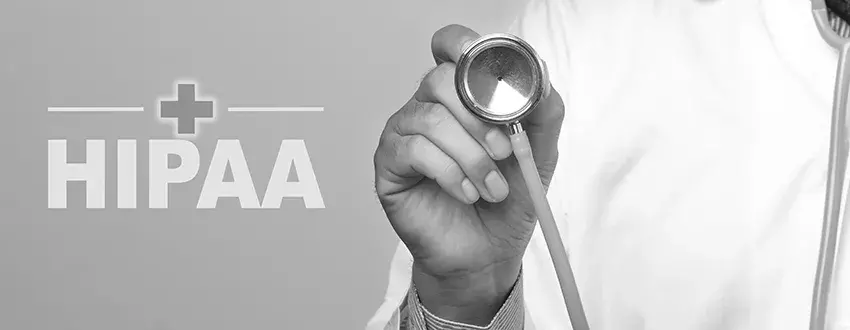
Exchanging PHI (Protected Health Information) via FTP (File Transfer Protocol) while meeting the stringent security requirements of HIPAA compliance requires adopting secure file transfer protocols such as FTPS, SFTP, AS2, or Managed File Transfer. This can reduce the risk of a data breach and potential financial loss, inadvertent mishandling of patient data, and the major hit to an organization's reputation and loss of trust of patients.
Achieving and maintaining HIPAA compliance for the healthcare industry is not an option, it is an expectation. After all, these compliance standards were designed to protect the sensitive, Protected Health Information (PHI) of patients. Any organization that handles this information must comply or risk substantial industry sanctions, and more.
Related Reading: Comparing the Top File Transfer Protocols
What is Needed for HIPAA Compliance?
With all the sensitive files exchanged in and out of healthcare systems and between third parties working with them, a goal of HIPAA’s Security Rule lays out what is required to protect the confidentiality, integrity, and availability of electronic Protected Health Information (ePHI).
The rule includes three general safeguards: administrative, physical, and technical, each designed to secure data and be HIPAA compliant when it comes to transferring data. Specifically, the safeguards involve:
- Preventing unauthorized access to ePHI from users or software that do not have permissions.
- Ensuring users can be tracked and any access or activity on information systems that use ePHI is recorded.
- Establishing electronic security protocols to insulate data in motion from unauthorized access as its transferred across electronic networks.
- Disconnecting electronic sessions based on predetermined rules.
- Applying procedures to encrypt and decrypt data such as ePHI.
- Demonstrating via electronic records that data has not been altered, compromised, or deleted without authorization.
Of course, there are more requirements, which can be found at this HIPAA Security Rule summary.
Meeting HIPAA Compliance With FTPS
As noted above, HIPAA requires that all health-related data transferred electronically be protected with industry-standard encryption technologies. The higher the encryption level, the more secure information exchanges will be. Secure file transfer software solutions can deliver the encryption security of FTPS, and other file transfer protocols to meet these compliance requirements.
While SFTP is the more commonly used protocol today, organizations that continue to use FTPS can be assured that this protocol also meets the requirements of HIPAA for secure file transfers.
GoAnywhere Can Help Your Organization Ensure HIPAA Compliance
Related Reading: SFTP vs FTPS: The Key Differences
FTPS (File Transfer Protocol Secure) is a file transfer protocol that allows for secure connections between healthcare organizations, users, patients, and third parties. Any files exchanged are done so through FTPS-supported methods like passwords, client certificates, and server certificates.
GoAnywhere MFT, a secure file transfer solution, can secure files at rest and in motion (as required by HIPAA) with a variety of encryption protocols, including FTPS. With FTPS, an encrypted tunnel is created between the FTPS server and any entities exchanging files, protects all the data, user ids, passwords, and commands coming in and out of that connection.
In addition, FTPS logs or audit trails are generated for all FTPS sessions in GoAnywhere MFT, a HIPAA requirement for tracking and recording all file movement and activities. These details include commands issued, messages, IP addresses, user IDs, and file names transferred.
Using FTPS can help meet the requirements for HIPAA compliance, as well as other industry compliance mandates such as PCI DSS, SOX, and more.
Managed File Sharing Protocols Can Help Meet HIPAA Compliance
Managed File Transfer (MFT) is one robust technical solution that can help the healthcare industry meet security and compliance goals for transferring patient data. GoAnywhere MFT uses FTPS, SFTP, AS2 and other protocols, and supports both implicit SSL and explicit SSL connection types. With GoAnywhere in place to transfer those electronic patient records and more, healthcare organizations can proactively and automatically:
- Protect the privacy and security of electronic health records whenever they’re accessed or shared.
- Provide technical safeguards that monitor file transfer activity.
- Promote interoperability between hospitals, clinics, pharmacies, and insurers with an easy-to-use solution for secure PHI transfer.
- Generate detailed log trails and audit reports for every file transfer.
- Identify the users, recipients, and names transmitted with files and documents.
- Enable user management and administrative settings to control your security.
- Set strict password policies and expiration intervals for users and workstations.
GoAnywhere and FTPS Work to Help Ensure HIPAA Compliance
With healthcare busier than ever, take advantage of the easy-to-use, automatic, and streamlined features found in GoAnywhere MFT, featuring FTPS and other strong encryption protocols to meet HIPAA requirements for safeguarding sensitive patient data as it travels in and out of your organization.
